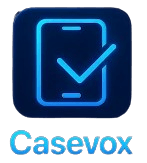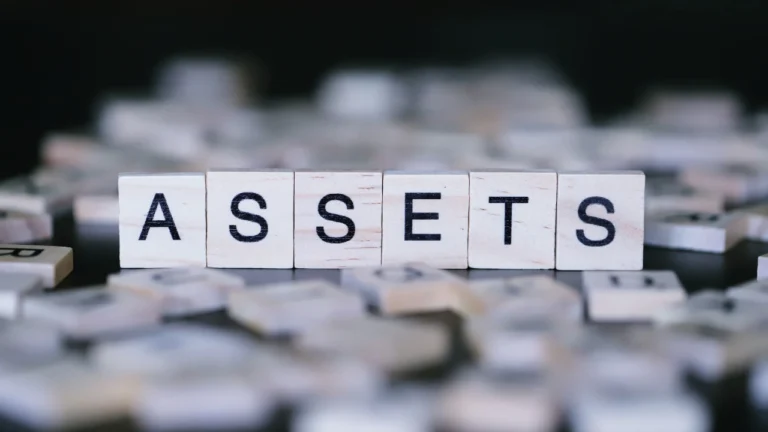
Accounts Recovery Agency, Inc Phone Harassment?
**Is Accounts Recovery Agency, Inc (ARAI) calling you?**Stop Accounts Recovery Agency, Inc phone harassment.Do they threaten to take legal action or garnish your wages? Are they calling you at all hours or several times a day? Are they telling your family and neighbors that you owe a debt? If so what they are doing is illegal and needs to stop. You have the legal right to stop ARAI phone harassment. Consumers may be contacted by phone, email, or text message, and all such contacts are regulated by law. Only legitimate debt collection agencies are allowed to contact consumers about debts, and they must follow federal and state laws. Various government agencies, including the Federal Trade Commission, play a crucial role in enforcing compliance with debt collection regulations. If a collection agency violates the FDCPA, you may be eligible to receive up to $1000.00 in statutory damages, along with covering your attorney fees. Legitimate agencies will only request standard, trackable payments, and requests for unusual payment methods may indicate a scam.
It is also important to check state laws to understand the legality of certain debt collection actions, as different states may have varying rules that can impact your rights and obligations. Understanding state law is crucial because some actions, like recording conversations without consent, may be illegal depending on the state’s regulations.
Introduction to Debt Collection
Debt collection is the process of recovering debts from individuals or businesses that have failed to pay their debts. Debt collectors use various tactics to collect debts, including phone calls, letters, and emails. Billing errors can complicate the debt collection process, often leading to disputes and aggressive tactics from collectors. However, some debt collectors may engage in abusive debt collection practices, such as using obscene or profane language, making false threats, or harassing debtors. The Fair Debt Collection Practices Act (FDCPA) is a federal law that regulates debt collection practices and protects consumers from abusive debt collection practices. Debt collectors must follow the FDCPA and other state laws to ensure that they are collecting bills in a fair and lawful manner.
Consumers have the right to dispute debts and request verification of the debt from the debt collector. It is important to note and write down all communications with debt collectors, including dates, times, and details of each interaction, to ensure accuracy and protect your rights. While debt collectors are required to cease communication upon receiving a letter, they can still report the debt on the individual’s credit report, impacting one’s credit history and overall financial health.
Is Accounts Recovery Agency, Inc a Scam?
According to the Better Business Bureau website, they have been in business for 43 years. Accounts Recovery Agency, Inc is a legitimate debt collection agency with a long business history, as verified by the Better Business Bureau.
There have been numerous complaints filed against Accounts Recovery Agency, Inc, which can be found on the Better Business Bureau website.
Accounts Recovery Agency, Inc Better Business Bureau
Who is Accounts Recovery Agency, Inc, a Debt Collection Agency?
Accounts Recovery Agency, Inc is a third-party debt collector working with various creditors, located in Palm Springs, California. Accounts Recovery Agency, Inc is one of many collection agencies that operate under specific legal guidelines.
Address: P.O. Box 2328
Palm Springs, CA 92263
Phone: (760) 327-8947

Accounts Recovery Agency, Inc Collection Tactics
Accounts Recovery Agency, Inc is a debt collection agency that may use a variety of tactics to collect debts from consumers. These tactics often include repeated calls, sending letters, and other forms of communication designed to persuade individuals to pay their outstanding accounts. While it is legal for a collection agency to contact you about a debt, federal law—specifically the Fair Debt Collection Practices Act (FDCPA)—sets clear boundaries to protect consumers from unfair practices.
It’s important to be aware that not all communication from a debt collection agency is harassment. However, when the frequency or tone of calls and letters becomes excessive or intimidating, it may cross the line into illegal harassment. The FDCPA was created to ensure that debt collectors follow fair debt collection practices and do not use abusive tactics to collect debts. If you are receiving repeated calls or letters from Accounts Recovery Agency, Inc, make sure you understand your rights and the specific rules that collection agencies must follow. Being informed can help you recognize when a collection agency’s tactics are no longer just attempts to collect a debt, but are instead forms of harassment that violate federal law.
Accounts Recovery Agency, Inc Collection Tactics
If they engage in any of the following tactics, you may have a case:
- ➢ Debt collectors are required to send a written notice to consumers as part of the debt collection process. Writing a letter to formally request the cessation of communication is crucial.
- ➢ If they continue to contact you after you have formally notified them in writing to stop further communication. You may be contacted by phone, email, or other means, and should document each time you are contacted. Debt collectors are also restricted from involving third parties, such as family members or employers, without your consent.
- ➢ If they continue to pursue collection efforts after you have disputed the debt, which obligates the collector to cease collection activities until verification is provided. Contacts with third parties about your debt can be a violation of your privacy rights.
Accounts Recovery Agency, Inc Phone Numbers
760-327-8947, (760) 327-8947, 7603278947
If the answer is yes, then you are receiving calls from a known ARAI number. Keeping detailed records of all communications with debt collectors is crucial for protecting one’s rights. You may be a victim of ARAI phone harassment. The list above is not all the numbers that ARAI uses. The calls can be from a different number and it still be Accounts Recovery Agency, Inc calling you. Contact our office right away so we can start the process to stop ARAI from calling you illegally. Above all, no one should live with harassment!
Understanding Fair Debt Collection Practices
The Fair Debt Collection Practices Act (FDCPA) is a crucial federal law designed to regulate debt collection practices and protect consumers from abusive debt collection practices. Under the FDCPA, debt collectors are required to follow fair debt collection practices, which include providing clear and accurate information about the debt, respecting consumers’ rights, and avoiding any form of harassment or intimidation.
One of the key protections under the FDCPA is the prohibition of using obscene or profane language, making false threats, or engaging in other forms of harassment. Consumers have the right to dispute debts and request verification of the debt from the debt collector. This means that if you believe there is an error or you do not owe the debt, you can formally dispute it and the debt collector must provide verification.
Additionally, debt collectors must cease communication with consumers who request it. They are also required to provide consumers with a written notice of their rights under the FDCPA. The Federal Trade Commission (FTC) plays a vital role in enforcing the FDCPA and can take action against debt collectors who violate the law. Debt collectors cannot threaten arrest unless you have violated a court order or the debt involves unpaid child support. Understanding these protections can help you stand up against abusive debt collection practices and ensure your rights are respected.

Federal Regulations and Debt Collection
The FDCPA is enforced by the Federal Trade Commission (FTC) and applies to debt collectors who use any instrumentality of interstate commerce or the mails in any business whose principal purpose is the collection of debts. Debt collectors must comply with federal regulations, including the FDCPA, as well as state laws that govern debt collection practices.
Under the FDCPA, debt collectors are prohibited from engaging in unfair or deceptive acts or practices, such as making false or misleading representations about the debt. They must provide consumers with clear and accurate information about the debt, including the amount of the debt, the name of the creditor, and the consequences of non-payment.
Consumers have the right to request a written validation of the debt from the debt collector. This validation must include the amount of the debt, the name of the creditor, and a statement that the debt will be assumed valid unless disputed within 30 days. Debt collectors must respect consumers’ rights and avoid harassment or intimidation, including making excessive phone calls or using abusive language. By understanding these federal regulations, consumers can better protect themselves from unfair debt collection practices.
Taking Action Against Harassment
If you are being harassed by debt collectors, there are several actions you can take to stop the harassment. One of the first steps is to send a written request to the debt collector to cease communication. This request legally obligates the debt collector to stop contacting you, except to inform you of specific actions they are taking.
You can also file a complaint with the Federal Trade Commission (FTC) or your state’s attorney general’s office. Debt collectors who engage in harassment or other abusive debt collection practices can be held liable for damages, including actual damages and attorney’s fees. Consumers can also sue debt collectors for violating the FDCPA and may be awarded up to $1,000 in damages, plus additional compensation for any actual harm caused. However, debt collectors may also file a lawsuit against consumers for unpaid debts, which can result in outcomes such as wage garnishment or asset seizure. It is important to understand your rights and the legal process if you are served with a lawsuit.
It is essential to keep a record of all communication with debt collectors, including dates, times, and details of conversations, as well as any written correspondence. This documentation can be crucial if you need to take legal action. Additionally, you can contact a non-profit credit counseling agency or a consumer protection organization for assistance in dealing with debt collectors and stopping harassment. Many clients have shared success stories after working with legal professionals to stop debt collection harassment and achieve positive outcomes. Taking these steps can help you protect your rights and put an end to abusive debt collection practices.
If you are facing debt collection harassment, contact us today for a free consultation with experienced attorneys to discuss your case and legal options.
Examples of Prohibited Conduct
There are specific actions that debt collectors are strictly forbidden from taking under federal law. For example, they cannot make false or misleading statements about the amount you owe or the legal consequences of not paying. Debt collectors are also prohibited from threatening to seize your property or garnish your wages unless they have obtained a valid court judgment. Additionally, they cannot contact you at your place of employment if you have informed them that such calls are not allowed, nor can they discuss your debt with neighbors, family members, or other third parties without your consent.
If you experience any of these prohibited behaviors, it is important to document each incident and seek assistance from a law firm experienced in debt collection harassment. Legal professionals can help you understand your rights, take action to stop the harassment, and pursue compensation if your rights have been violated. Remember, you do not have to tolerate illegal tactics from debt collectors—federal law is on your side.

Consumer Rights Law Firm PLLC
If you’re experiencing aggressive or harassing phone calls from Accounts Recovery Agency, you’re not alone. Federal consumer protection laws limit how often debt collectors can call, what they can say, and who they can contact. If you’re receiving nonstop calls, misleading statements, or harassment, you have rights that must be respected.
At Consumer Rights Law Firm PLLC, we help consumers stop phone harassment from Accounts Recovery Agency and other debt collectors. Our attorneys understand debt collection laws and use them to protect your rights and put an end to abusive calling practices. Since 2010, we’ve helped thousands of clients regain peace of mind and hold collectors accountable and we proudly maintain an A+ rating with the Better Business Bureau.
If you’re dealing with phone harassment from Accounts Recovery Agency, call (877) 700-5790 for immediate help or visit our website to get started.
Success Stories
- If you are receiving questionable calls, threatening calls etc I highly recommend getting in touch with the folks at this company! Scott helped me navigate what to do regarding a company that was very questionable. Scott you are my hero! I don’t know what I would have done without you. Thank you for taking the time to help me. You are so helpful and so kind. Thanks.⭐⭐⭐⭐⭐
- The gentleman who answered my call was very professional and polite, he did inform me that his law firm was for a different subject than what I seek. I appreciate him very much for his honesty. I wouldn’t hesitate to do business with this firm if I ever needed to in the future.⭐⭐⭐⭐⭐
- I had a great experience with this law firm. They were very friendly and THERE ARE NO OUT OF POCKET COST. I never paid a dime for their services. My case is settle which made me a very happy woman. Give them a try. You wont be disappointed⭐⭐⭐⭐⭐
Frequently Asked Questions
1. Who is Accounts Recovery Agency?
Accounts Recovery Agency is a debt collection company that contacts consumers to collect alleged debts.
2. Can Accounts Recovery Agency call me repeatedly?
No. Repeated or excessive calls meant to harass you are illegal under federal law.
3. Is phone harassment by Accounts Recovery Agency illegal?
Yes. Harassing, abusive, or threatening phone calls violate the Fair Debt Collection Practices Act (FDCPA).
4. Can Accounts Recovery Agency call me at work?
They may not call you at work if you tell them your employer does not allow such calls.
5. Can Accounts Recovery Agency call family members?
They cannot discuss your debt with family or friends—only basic location information is allowed.
6. What time can Accounts Recovery Agency legally call me?
They cannot call before 8 a.m. or after 9 p.m. your local time.
7. Do I have the right to stop Accounts Recovery Agency from calling me?
Yes. You can send a written request asking them to stop contacting you.
8. Can Accounts Recovery Agency threaten legal action?
They can only threaten legal action if it is real and intended. False threats are illegal.
9. Can I record calls from Accounts Recovery Agency?
This depends on your state’s recording laws. Many states allow one-party consent.
10. What should I do if Accounts Recovery Agency keeps harassing me?
You may have legal options and should contact a consumer rights attorney for help.







